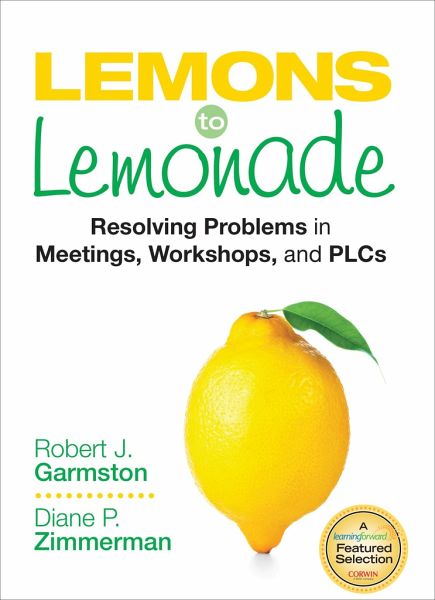Nicht lieferbar

Lemons to Lemonade
Resolving Problems in Meetings, Workshops, and Plcs
Versandkostenfrei!
Nicht lieferbar
"Garmston and Zimmerman have written a book that is the perfect blending of theory and research with very practical, user-ready techniques for facilitating meetings AND for dealing with specific challenges. I would LOVE to see this kind of training offered for administrators!" -David Chojnacki, Executive Director Near East South Asia Council of Overseas Schools No more unproductive meetings! The complete guide to getting the most out of every gathering of educators. Do your meetings spiral angrily out of control? Or simply not make the most of the participants' talents? Lemons to Lemonade by R...
"Garmston and Zimmerman have written a book that is the perfect blending of theory and research with very practical, user-ready techniques for facilitating meetings AND for dealing with specific challenges. I would LOVE to see this kind of training offered for administrators!" -David Chojnacki, Executive Director Near East South Asia Council of Overseas Schools No more unproductive meetings! The complete guide to getting the most out of every gathering of educators. Do your meetings spiral angrily out of control? Or simply not make the most of the participants' talents? Lemons to Lemonade by Robert J. Garmston and Diane P. Zimmerman is the playbook you need to promote civil, productive discourse, detailing: How to prepare yourself to facilitate the discussion and keep it on task Best practices for squashing conflict without wounding pride Methods for dealing with "frowners," "interrupters," "subject-changers," "humorists," and other time-waster types With this book, you will never waste another opportunity for problems to get solved by the combined powers of capable minds.




